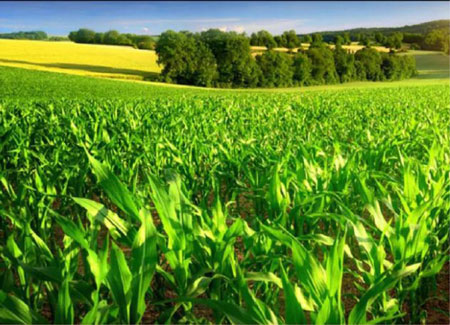Experts at a workshop have stressed the need of reforming agriculture sectors on modern lines to ensure food security for ever increasing population in Pakistan.
As per estimates, Pakistan’s population will reach 403 million by the year 2050. Pakistan will be among eight countries to account for half of the projected global population.
Experts urged taking proactive measures to increase crop yield and minimize losses by using technology and adopting better farming practices.
CropLife Pakistan, a representative body of the plant sciences industry, arranged the workshop on “Challenges in agriculture and the role of modern technologies” at Nathia Gali.
CropLife BioTech committee lead Muhammad Shoaib said that there was a need of using all means including introduction of GM technology, developing new potent seeds and precision agriculture for enhancing crop yield. He said that it would help achieving food security and even producing surplus for exports. He said that the GM technology has brought a revolution in the world and there was a need to follow the trend for improving lives of farming community and in the larger benefit of the country.
He said that the companies were continuing research in new seeds with new technologies but not getting approval for commercial use.
“The prevailing scenario is discouraging the companies”, he said.
“Biotech crops increased over 112-fold from 1996, with an accumulated biotech area of 2.7 billion hectares. As such, GMO is the fastest adopted crop technology in the world. The most adopted biotech crops are soybeans, maize, cotton, and canola”, he said, adding that Soybean was the leading biotech crop with 91.9 million hectares that occupied 48% of the global biotech crop area.
Mr Shoaib said that 460 million acres of GM crops were grown globally without any documented environmental safety incidents.
In Pakistan, GM cotton had been cultivated on 7-8 million acres for over a decade ago with no recorded adverse impact on the soil quality or the environment. Similarly, the poultry sector was importing soybeans for its feed purposes.
Muhammad Asim, a member of CropLife Bio-tech committee, stressed the need of following new trend – “Regenerative Agriculture (RA)”. It is an outcome-based farming approach that enhances soil health, mitigate climate change, improve water retention and biodiversity, and increase farm productivity through innovation, he added.
Integrating crop sciences, technologies and practices was crucial to realizing the vision of RA, which encompasses environmental benefits, supports rural livelihoods, ensures food security, and advances sustainable agriculture, he said.
Murtaza Quddusi highlighted the benefits of using drones in the agricultural sector.










